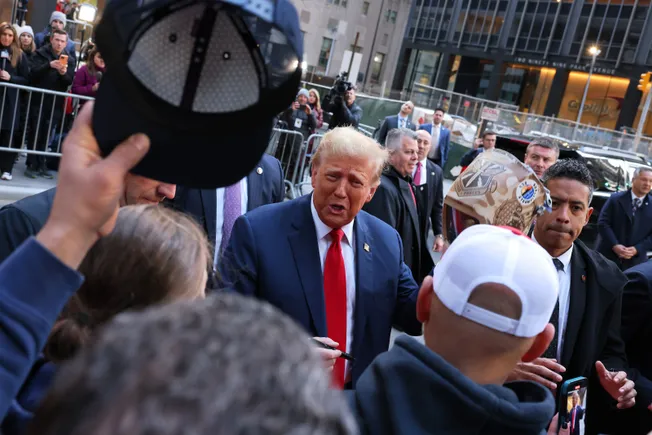President-elect Donald Trump has promised to impose widespread tariffs when he takes office in January. For commercial builders and their clients, that could spell major price hikes.
While much about the plan remains uncertain, industry leaders are already bracing for its potential impact. The scale of the tariffs — and how rigorously they are enforced — will determine how deeply construction is affected, said Chris Fisher, managing principal at Troy, Michigan-based consulting group Ducker Carlisle.
“What will create challenges for commercial construction is if we see a significant amount of tariffs that are announced, followed through and then actually enforced,” said Fisher. Broad enforcement could disrupt construction by increasing the costs of materials from specific countries, potentially delaying or deferring projects altogether, he said.
Products imported from China, including lower-cost commodity items such as certain metals, coatings, plumbing components and HVAC parts, could see significant price increases, said Fisher. Trump said on social media recently he plans to impose an extra 10% tax on goods from China in addition to current tariffs.
Red iron steel, a type of structural steel that is often sourced from China, is also at risk of price increases, said Bryan Ehrlich, president of NCE General Contractors, a San Antonio-based general contractor. China ranks as the largest crude steel producer in the world, according to the World Steel Association.

Bryan Ehrlich
Permission granted by NCE General Contractors
That could counteract recent cost reductions. Steel prices have dropped significantly in the past year, with steel products down about 10% and iron and steel down 7%, said Anirban Basu, chief economist at Associated Builders and Contractors.
“My guess is the Trump administration is going to put even higher tariffs on Chinese steel,” said Basu. “If you’re a consumer of steel, that drives up steel price higher than it otherwise would be.”
Iron and steel prices drop after pandemic surge
Producer price index for iron and steel products from January 2019 to November 2024
Electrical components, including gear parts that are sourced internationally, are also at risk of price increases due to the potential tariffs on China, said Ehrlich. Tariffs on these materials could also pose additional supply chain challenges for commercial builders.
Data center, manufacturing impacts
If these tariffs happen, impacts could ripple through the data center and manufacturing construction sectors, where electrical components such as transformers, circuit breakers and switchgear already face key bottlenecks. Tariffs would likely worsen these issues, further straining project schedules in two of the construction industry’s most active segments.
Meanwhile, other types of steel, cement and aggregates, which are primarily sourced domestically, are less vulnerable to across-the-board tariffs, said Fisher. Federal projects, which often require domestic materials, would likely also see minimal impact, for example.
Reduced competition, higher prices?
Yet even these domestically produced items could become more expensive.
That’s because tariffs could reduce competition from imports, said Ken Simonson, chief economist at the Associated General Contractors of America. He said “new or increased tariffs have the potential to raise prices for a wide range of construction inputs, including items produced domestically that compete with imports.”
Ehrlich pointed to the pricing dynamics during the COVID-19 pandemic, when supply chain disruptions and inflation drove up costs for many materials. Even after those pressures eased, some suppliers kept prices inflated, he said.
Inputs to nonresidential construction have jumped 39.2% since February 2020, according to the U.S. Bureau of Labor Statistics.
Construction input costs rise nearly 40% since 2020
Producer price index for inputs to construction from January 2019 to November 2024
“What happened during COVID is prices went up due to COVID, inflation or whatever the excuse is, and now that it’s gone, people recognize that they can keep the prices there and nobody is going to care,” said Ehrlich. “I think what the tariffs are going to do is they’re going to have to make suppliers find ways to cut costs on their end and get them back into the competitive market.”
All a bluff?
Some industry leaders question whether the proposed tariffs are more of a negotiating tactic than a certainty. Trump is likely using his plan as leverage to strike deals or secure concessions rather than following through with sweeping measures, said Basu.

Anirban Basu
Permission granted by ABC
“A lot of these announced tariffs are simply posturing by the president. He’s using this as negotiating leverage,” said Basu. “My best guess is that we will see a modest increase in certain targeted tariffs, but nothing massive, as has been proposed.”
Fisher noted the construction industry has seen tariffs announced in the past but emphasized their full impact depends on whether they have teeth behind them.
“We’re a long way from that,” said Fisher. “We don’t know what level of actual tariffs will be implemented and then how and what will be enforced.”
